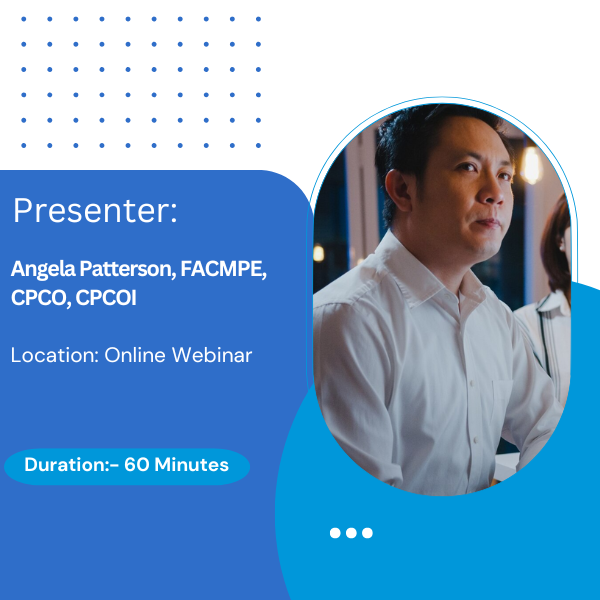Currently Empty: $0.00
2025 Strategic Payor Contracting: Negotiation Tactics for Revenue Growth
Price range: $251.00 through $255.00
In today’s rapidly evolving healthcare landscape, medical practices face an increasingly complex web of financial challenges, particularly in their relationships with payers. Effective payer contract negotiations are not only crucial for securing fair reimbursement rates but also for ensuring the long-term financial stability and success of your medical practice. This presentation addresses the core strategies and principles required to navigate these negotiations, equipping healthcare providers with the tools they need to thrive in this competitive environment.
The first area of focus is on mastering the intricacies of payer contracts. Understanding the key terms, reimbursement structures, and performance metrics embedded in these agreements is essential for successful negotiations. By decoding these critical elements, medical practices can better advocate for terms that align with their financial and operational goals. Negotiation is not simply about securing higher rates; it’s about achieving a balanced partnership with payers that supports both quality patient care and sustainable practice management.
Another pivotal aspect of this discussion centers on maximizing revenue through effective payer negotiations. For medical practices, reimbursement rates directly impact cash flow and the ability to invest in new technologies, hire skilled staff, and expand services. Negotiating favorable terms with payers requires a data-driven approach, leveraging performance metrics and market benchmarks to demonstrate the value a practice brings to the table. This presentation explores strategies for identifying opportunities, minimizing revenue leakage, and fostering payer relationships that drive long-term profitability.
Finally, we delve into the art of the deal, highlighting the softer skills necessary for effective negotiation. Building trust, maintaining clear communication, and understanding the motivations of payer representatives are all critical components of successful outcomes. This segment of the presentation emphasizes the importance of preparation, patience, and adaptability, while also addressing common pitfalls to avoid during negotiations. Whether dealing with initial contracts or renegotiating existing agreements, medical practices must approach these discussions with confidence and clarity of purpose.
Together, these themes provide a comprehensive roadmap for tackling payer contract negotiations. From mastering the technical aspects of contracts to leveraging data for maximum financial impact, and refining negotiation skills, this presentation equips medical professionals with actionable insights to enhance their practice’s bottom line. As the healthcare industry continues to shift towards value-based care and other evolving payment models, the ability to negotiate effectively with payers has never been more critical.
By understanding and applying these principles, medical practices can transform payer relationships from transactional to collaborative, fostering agreements that not only benefit the practice but also enhance patient outcomes. The ultimate goal is to empower healthcare providers to take control of their financial futures while continuing to deliver exceptional care in a challenging and dynamic environment. This presentation serves as a vital resource for anyone looking to sharpen their negotiation skills, optimize revenue streams, and build stronger partnerships with payers.
Learning Outcomes:
- Understand the critical elements of payer contracts, including key terms, reimbursement structures, and performance metrics
- Learn how to analyze and evaluate existing payer agreements to identify areas for improvement
- Develop strategies for negotiating fair reimbursement rates that align with the financial and operational goals of a medical practice
- Leverage data-driven approaches, including performance metrics and market benchmarks, to strengthen negotiation positions
- Build trust and effective communication with payer representatives to foster collaborative relationships
- Identify common pitfalls in contract negotiations and learn how to avoid them
- Explore tactics to minimize revenue leakage and optimize practice profitability
- Understand how value-based care models and evolving payment structures impact contract negotiations
- Enhance negotiation skills, including preparation, patience, adaptability, and conflict resolution
- Empower medical practices to transform payer relationships from transactional to collaborative partnerships that support both financial stability and quality patient care
Areas Covered in the Session:
- Overview of topics:
- Understanding payer contracts
- Leveraging data for negotiations
- Building collaborative relationships
- Navigating challenges
- Enhancing negotiation skills
- Importance of Payer Contract Negotiations
- Why it matters:
- Ensures fair reimbursement rates
- Impacts practice profitability
- Supports high-quality patient care
- Why it matters:
- Goals of this Presentation
- Understand key elements of payer contracts
- Evaluate existing agreements
- Develop strategies for fair reimbursement
- Use data-driven approaches
- Build trust with payers
- Avoid common pitfalls
- Minimize revenue leakage
- Adapt to payment model changes
- Enhance negotiation skills
- Foster collaborative partnerships
- Anatomy of a Payer Contract
- Key components:
- Reimbursement terms
- Performance metrics
- Termination clauses
- Key components:
- Common Contract Issues
- Key Terms
- Terms impacting Administrative Burden
- Preparation
- Importance of Data in Negotiations
- Types of data:
- Performance metrics
- Market benchmarks
- Patient demographics
- Types of data:
- Using Market Benchmarks
- Visualizing Data for Impact
- Collaborative Negotiation Approach
- Understanding Payer Perspectives
- Communication Best Practices
- Building Long-Term Relationships
- Common Negotiation Pitfalls
- Overcoming Stalemates
- Adapting to Industry Changes
- Evaluating Contract Terms
- Vague Areas
- Medical Records
- Audits
- Utilization Review
- Quality Assurance
- State Liability Pool
- Identifying Areas for Value-Added Services
- Monitoring and Managing Payer Performance
- Technology and Artificial Intelligence
- Automation
- Reporting
- Navigating Contract Renewals
- “Closed” Networks
- Handling Contract Disputes
- Assessing Reimbursement
- Gather information
- Analyze the proposed reimbursement
- Quick Evaluation Method
- Ensuring Compliance and Auditing Contracts
- Developing Long-Term Relationships with Payers
- Preparing for Market Changes in Payer Contracts
- Credentialing
- Enrolling Existing Providers
- Payment at Group or Individual Level?
- What about future new providers?
- What about NPs and PAs?
- Conclusion: Key Takeaways for Successful Payer Contracting
Recommended participants:
- Healthcare CEOs, CFOs and COOs
- Billing Staff and Companies
- Physicians and Other Providers
- Healthcare Consultants
- Medical Practice Administrators
- Practice Manager
- Practice Owners
- Revenue Cycle Managers
- Compliance Officers
- Credentialing Managers
- Office Managers
- Payment Posters
- Other Health Care Executives
- Practice Financial Mangers, Such as Internal or External CPAs/ Accounting Staff
- All Practices
Presenter Biography:

Angela Patterson, FACMPE, CPCO, CPCOi has over 30 years’ experience in medical billing and payer contract evaluations, with a strong background spanning multiple respected organization – including Medaphis/ Per Se Technologies, ABC/ National Data Corporation, and MPM—she has developed a deep expertise in medical practice management, billing operations, and compliance strategy.
At CompMed as Chief Operating Officer of Comprehensive Medical Solutions, Inc., Ms. Patterson has played a key role in optimizing the efficiency of billing software. By collaborating closely with her software vendor, she ensures that the technology adapts to the evolving needs of healthcare practices, streamlining billing processes and improving automation. Additionally, she oversees the analyzing of managed care contracts for CompMed’s clients, using her extensive knowledge for her team to negotiate favorable reimbursement rates and improve contract terms. Ms. Patterson also leads the Credentialing Team, overseeing the process that ensures healthcare providers meet the necessary qualifications to join insurance networks.
Ms. Patterson holds a Bachelor of Science degree from Berry College, where she double majored in Economics and Business Management and minored in Accounting. She is a Fellow (FACMPE) of the American College of Medical Practice Executives (ACMPE) of the Medical Group Managers Association (MGMA), a Certified Professional Compliance Officer (CPCO) through the American Academy of Professional Coders (AAPC), and a Certified Professional Compliance Officer Instructor (CPCO) also through the AAPC.
As CompMed’s Compliance Officer and Security Officer, Ms. Patterson ensures the integrity and regulatory adherence of the company’s Compliance Plan. She is a valued member of industry associations such as National MGMA, Tennessee State MGMA, local Cleveland, TN MGMA and AAPC, and currently serves as the 2025 Secretary of the Cleveland, Tennessee MGMA chapter and Secretary/ Treasurer of the Cleveland, TN AAPC Chapter.
Ms. Patterson’s leadership continues to drive both operational excellence at CompMed and success for the healthcare practices it serves.
Additional Information:
After registration, You will receive an email with login information and handouts (presentation slides) that you can print and share with all participants at your location.
System Requirement:
- Internet Speed: Preferably above 1 MBPS
- Headset: Any decent headset and microphone which can be used to talk and hear clearly
Can’t Listen Live?
No problem. You can get access to an On-Demand webinar. Use it as a training tool at your convenience. For more information, you can reach out to the below contact: Toll-Free No: +1 800-757-9502 Email: cs@waymoreeducation.com





